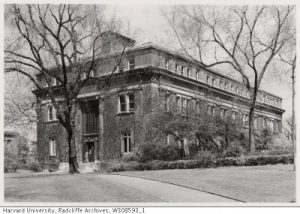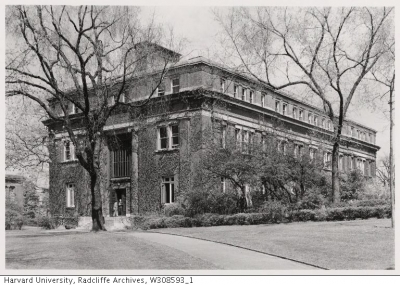 To William James
To William James
Ávila, Spain. August 7, 1888
Dear Prof. James,
Many thanks for your letter, and for your expressions of interest. I have not seen anywhere that residents can’t hold the Walker Fellowship, but if such be the case or even if it be thought that non-residents have a better claim to it, of course I am quite ready to resign. The doubt you express about my “fulfilling the purposes, etc” was a reason in my mind for returning to Harvard. I fancy that if I were there I should run less danger of being considered an unprofitable servant. Being a foreigner and coming from a rather different intellectual and moral milieu, I have a lighter and less conscience-stricken way of taking things, which produces the impression of idleness and frivolity in the absence of ocular proof that after all I do as much work as other people. You interpret my disillusions in the matter of philosophy rather too seriously. There is nothing tragic about them. I was drawn to philosophy in the beginning by curiosity and a natural taste for ingenious thinking, and my attachment to philosophy remains as firm as ever, as I said in my previous letters. These things never came to me as a personal problem, as a question of what was necessary for salvation. I was simply interested in seeing what pictures of the world and of human nature men had succeeded in sketching: and on better acquaintance I see reason to think that they are conventional and hieroglyphic in the extreme. But the interest in these delineations is no more destroyed for me by not trusting their result or their method than the charm of a play is destroyed if it is not historical. Philosophy does not cease to be a field of human activity and as such to have its significance and worth, and I cannot see why one so inclined by temperament cannot make good use of his time in that study, as in the study of art or comparative religion. Renan has said that no one can be a good historian of religion who has not been a believer and who is not a sceptic: the same may be true of philosophy. I therefore do not think that my present attitude unfits me to study philosophy or to teach it, although I can easily imagine that others may not be of my opinion in this respect. I will therefore not throw up the fellowship on the ground that I have had a moral and mental collapse, a conversion to the devil, as it were, that unfits me, as insanity might, to hold any official position. I have had nothing of the sort. My notions about the possibilities of human thought and knowledge have gradually changed, and I have become convinced that most of our scheme of doctrine is built on false or arbitrary axioms. But this has been no personal crisis, no inward transformation. There may have been moments when I have tired of certain authors, or certain problems, and in this mood I may have said something liable to be misunderstood. But the good authors, the sharp and radical thinkers, are still my delight and even my chief amusement, and I can imagine no more congenial task than to talk them over with other students. I have known all along that there was little chance of my being trusted anywhere with a professorship of philosophy: but I have taken this opportunity of study for its own sake and for mine, thinking that I could always live by teaching one thing or another, while I have not enough to live on without work.
This is frankly the way I feel about the matter. If it seems to you that under the circumstances it would be better to give up the fellowship, I am ready to do so. At any rate I intend to return to America, as it is a better country than this to get a living in, and for the present I can live with my mother. I shall probably arrive about Sept 15, when I hope to have the pleasure of seeing you.
Yours ever,
G Santayana
From The Letters of George Santayana: Book One, [1868]-1909. Cambridge, MA: The MIT Press, 2001.
Location of manuscript: The Houghton Library, Harvard University, Cambridge MA.
